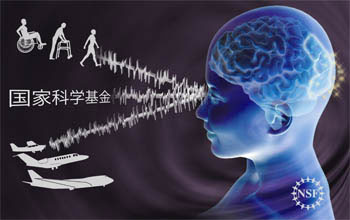Instant Complex Skills Training, Like in The Matrix?
Scientists in Boston and Tokyo are developing an advanced form of fMRI neurofeedback that promises to make the learning of complex skills both faster and easier. The study was published in the Journal Science.
When we learn complex skills consciously, we typically practise the skill over and over, comparing our performance with an ideal performance. Eventually, our skills generally improve, and become automatic -- bypassing the conscious level. But with advanced neuroimaging feedback, we can skip the long and tedious training period and move directly to the automatic brain plasticity phase.
Boston University post-doctoral fellow Kazuhisa Shibata designed and implemented a method using decoded fMRI neurofeedback to induce a particular activation pattern in targeted early visual areas that corresponded to a pattern evoked by a specific visual feature in a brain region of interest. The researchers then tested whether repetitions of the activation pattern caused visual performance improvement on that visual feature.
The result, say researchers, is a novel learning approach sufficient to cause long-lasting improvement in tasks that require visual performance.
What's more, the approached worked even when test subjects were not aware of what they were learning.
"The most surprising thing in this study is that mere inductions of neural activation patterns corresponding to a specific visual feature led to visual performance improvement on the visual feature, without presenting the feature or subjects' awareness of what was to be learned," said Watanabe, who developed the idea for the research project along with Mitsuo Kawato, director of ATR lab and Yuka Sasaki, an assistant in neuroscience at Massachusetts General Hospital.
"We found that subjects were not aware of what was to be learned while behavioral data obtained before and after the neurofeedback training showed that subjects' visual performance improved specifically for the target orientation, which was used in the neurofeedback training," he said.
The finding brings up an inevitable question. Is hypnosis or a type of automated learning a potential outcome of the research?
"In theory, hypnosis or a type of automated learning is a potential outcome," said Kawato. "However, in this study we confirmed the validity of our method only in visual perceptual learning. So we have to test if the method works in other types of learning in the future. At the same time, we have to be careful so that this method is not used in an unethical way."
At present, the decoded neurofeedback method might be used for various types of learning, including memory, motor and rehabilitation. _MedXpress
It is fascinating to Al Fin cognitivists that the subjects were unaware of the skills which were to be learned, even though a complex type of learning actually occurred inside the brain. Not surprising, but fascinating nonetheless.
In order for complex skills learning to become faster and easier, it must necessarily bypass the slow and tedious conscious levels of learning and pass directly to the fast, hyper-parallel, sub-conscious levels of automatic brain plasticity.
Yes, this technology -- like all powerful technologies -- is extremely dangerous if used improperly. Since the learner is unconscious of what he is to learn, he is at the mercy of the person or program which has designed the learning protocol. Such is the life of an advanced ape species.
But on the more positive side, one of the greatest tragedies of human life has been that the wisdom, knowledge, and skills of highly accomplished persons has never been transferrable to other persons, in any practical way -- other than through a long, limited, awkward, and uncertain apprenticeship process.
Advanced induced neuroplasticity methods -- of which this is only one -- can study the working brains of highly skilled individuals, and learn how the skills are assembled and integrated within brain structures. Then, creating highly abstracted target images, neurofeedback protocols can be designed to quickly build neural foundations for the transferrence of these mental and physical skill sets.
NSF newsrelease
More: Enhanced memory through the blocking of a natural protein
Labels: brain plasticity, learning research, neurofeedback


0 Comments:
Post a Comment
“During times of universal deceit, telling the truth becomes a revolutionary act” _George Orwell
<< Home